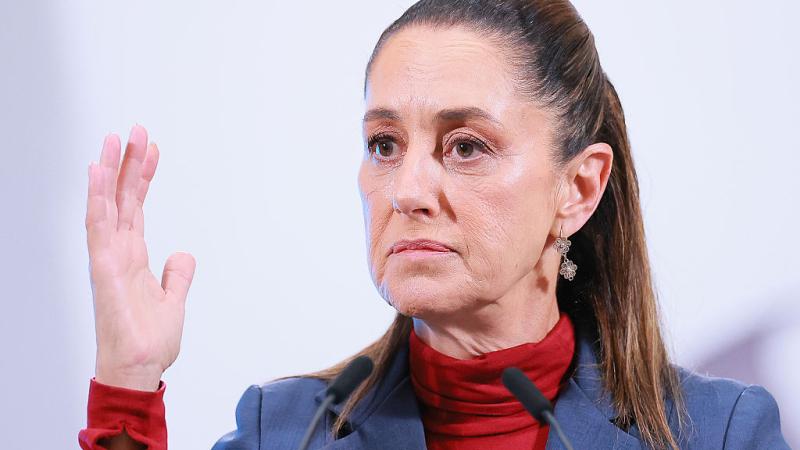School district may have 'intentionally deceived' parents on girl's gender transition, judge rules
Precedent upholding emergency contraception for minors without parental notification doesn't apply to situations where school district allegedly fudged student records to hide gender transition from parents, ruling says.
A Michigan school district may have violated the due process rights of parents by "actively concealing" their daughter's identification as a boy, referring to the girl by her given name with parents and her "masculine" name at school, a federal judge ruled, exacerbating conflicts in the lower courts that may trigger Supreme Court review.
U.S. District Judge Paul Maloney, known for siding with a school district that banned students from wearing "Let's Go Brandon" sweatshirts, greenlit Dan and Jennifer Mead's Fourteenth Amendment claims against Rockford Public School District for violating their "fundamental rights as parents" and "deprivation of liberty without due process."
He dismissed the Meads' free exercise claim, however, saying surreptitious social transitions don't "compel students (or their parents) to believe or do anything," contrary to the mandatory exposure to LGBTQ "storybooks," compelled school attendance and flag-salute requirement struck down by the Supreme Court in precedents from the 1940s to this year.
The President George W. Bush nominee noted the 6th U.S. Circuit Court of Appeals, which is binding on him, last month upheld an Ohio gender identity school restroom policy as "facially neutral" in a challenge by Muslim and Christian students. (Their only potential relief was damages, since Ohio mandated restroom access by sex during the case.)
The 1st Circuit, which oversees Massachusetts, New Hampshire, Maine and Rhode Island and has no Republican-nominated judges, reached the opposite conclusion as Maloney on parental rights and due process earlier this year, prompting parents Stephen Foote and Marissa Silvestri to petition the Supreme Court.
Several friend-of-the-court briefs are backing the Massachusetts parents, including detransitioners who abandoned transgender identities after medicalization and a prominent transgender child psychologist who argues parents are integral to transitions.
The 3rd Circuit, covering Pennsylvania, Delaware and New Jersey, heard a similar case this summer and already has precedents upholding parental authority, including an opinion joined by future Justice Samuel Alito on "actions that strike at the heart of parental decision-making authority on matters of the greatest importance."
George Washington University law professor Jonathan Turley called Maloney's ruling "potentially precedent-setting" on parental rights in public schools. He highlighted Maloney's finding that the Meads' allegations "show some amount of coercion or interference" from the district, implicating their right to make "fundamental decisions" for the girl.
Missed one male reference in otherwise scrubbed evaluation
"G.M," as the girl is identified in legal filings, had been meeting with school counselor Erin Cole since sixth grade and told Cole near the end of seventh grade that she wanted school officials and teachers to use "a masculine name" for her.
Earlier that school year, an outside psychologist had diagnosed the girl with autism spectrum disorder, generalized anxiety disorder and major depressive disorder, which her parents shared with Cole and other school officials, according to Maloney's summary.
The subterfuge continued into G.M.'s eighth-grade year, with school employees calling her by her preferred name and masculine pronouns, school neuropsychologist Heather Slater opening a "Case Activity Log" that identified her as female "transitioning to male" with different names at home and school, and school communications home identifying her as female.
The Meads discovered the situation in October 2022, when Slater gave them an evaluation of G.M.'s academic performance with notes from the student's teachers that Slater meant to scrub of all references to her as a boy but missed one.
Slater ignored the parents when they asked whether the lone male reference was an accident, and they pulled G.M. out of school that month. The principal told them he couldn't "guarantee" the school would stop hiding information about the girl from them, citing district policy and its "understanding of voluntary guidance" from the state Department of Education.
Intentionally deceiving parents different than 'failing to notify them'
A century of SCOTUS precedents protects "right of parents to direct their children’s upbringing," including their health, and the districts actions "raise concerns regarding both" their right to care, custody and control of their children and "to recognize symptoms of illness and to seek and follow medical advice" for them, Maloney wrote.
He cited a ruling against a California school district and state officials including Attorney General Rob Bonta in a lawsuit by teachers who sought to inform parents of their children's social transitions in school and protect themselves from retaliation.
U.S. District Judge Roger Benitez, another Bush nominee, had compared social transitioning to other conditions with "significant, adverse, life-long social-emotional health consequences" including concussions and suicide attempts.
The Rockford Public School District wrongly invoked the 3rd Circuit precedent Anspach on emergency contraception for a minor without parental knowledge or consent – also at issue in the 3rd Circuit social transitioning challenge – because the Meads "plead that the District intentionally deceived them," Maloney wrote.
The Meads have "plausibly alleged" the district infringed upon a fundamental right, doing more than "failing to notify them of their child’s gender transition" but consistently calling her by the wrong sex, scrubbing male references in its communications with the Meads and refusing to promise to tell them the truth about the girl, the judge said.
Their allegation that the district's social transitioning was a "psychosocial intervention for gender dysphoria" is backed by Slater's "confidential evaluation" of the girl, whose file says it was "not completed due to parent withdrew [sic] student to be homeschooled." Letting the district deceive her parents "undermined their ability to choose appropriate medical treatment" for her.
Under the judicial review standard known as strict scrutiny, which Maloney did not apply to the free-exercise claim, Rockford's compelling interest in student safety doesn't give it "carte blanche to tell a child’s parents nothing about their child’s gender transition."
Rockford didn't even suggest "G.M. faced harm from her parents" if it disclosed her gender identity to them, and its student privacy argument fails because its employees called her "by her preferred masculine name openly and publicly at school," Maloney wrote.
"Our motion to dismiss was denied. The judicial process will continue with discovery," Superintendent Steve Matthews told Just the News.
"Out of respect for the family and the student and to continue to protect their privacy we have no further comment," he said.
The Facts Inside Our Reporter's Notebook
Videos
Links
- federal judge ruled
- siding with a school district that banned students
- Dan and Jennifer Mead
- mandatory exposure to LGBTQ "storybooks,"
- upheld an Ohio gender identity school restroom policy
- opposite conclusion as Maloney on parental rights and due process
- petition the Supreme Court
- Several friend-of-the-court briefs are backing
- detransitioners who abandoned transgender identities
- transgender child psychologist
- heard a similar case this summer
- opinion joined by future Justice Samuel Alito
- Jonathan Turley called Maloney's ruling
- ruling against a California school district
- 3rd Circuit precedent Anspach














